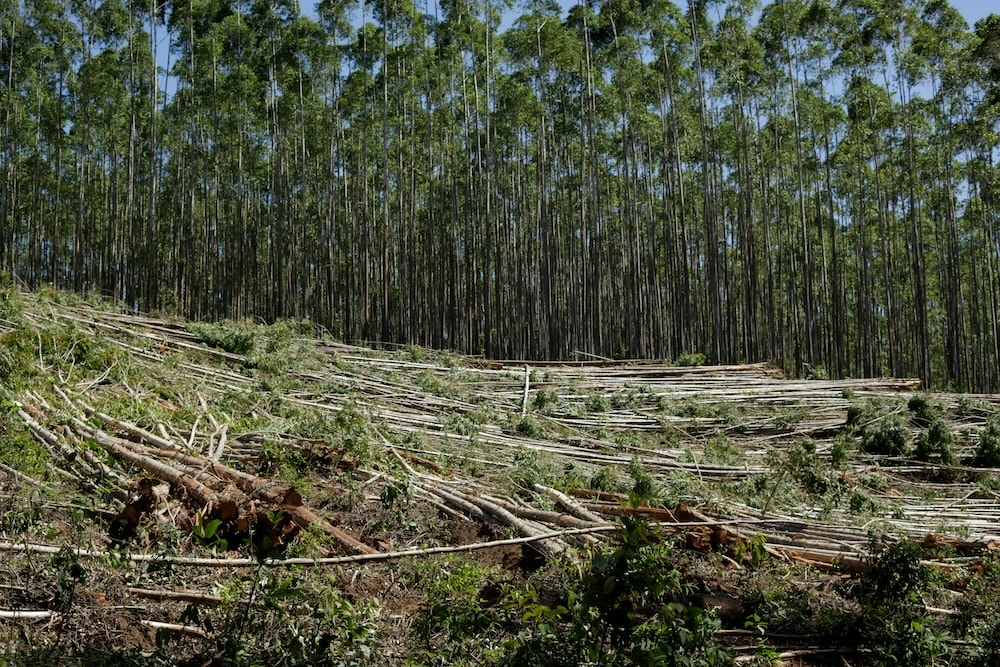England may have some of the best football clubs in the world, but just how green are they?
Sport Positive have just released their 2022 ranking of the 20 teams from the Premier League, England’s top football league, based on how green they are.
Tottenham and Liverpool have come joint top for the second year running. While the league as a whole saw one of the biggest improvements since the first ranking was released in 2018, not everything is a positive.
For example, all teams lost points for taking domestic flights.
This is something teams have come under scrutiny for this season, with BBC research finding evidence of 81 short-haul flights to and from 100 games over a two-month period this year. Some of the flights, taken between January 19 and March 19, 2023, were as short as 27 minutes.
Sport Positive ranks clubs in 12 sections: policy and commitment, clean energy, energy efficiency, sustainable transport, single-use plastics, waste management, water efficiency, plant-based/low-carbon food, biodiversity, education, engagement on sustainability, and sustainable procurement. Together, these give clubs a total score out of 27.
The top-ranking clubs — Tottenham and Liverpool — reached 24.
We are delighted to have been recognised as the Premier League’s greenest club for a fourth year running having topped the Sport Positive EPL table.
During the last 12 months, we became the first club to deliver sustainability training for all players.
Read more ⤵️
— Tottenham Hotspur (@SpursOfficial) May 11, 2023
Manchester City, Southampton, and Brighton rounded out the top five. While facing relegation at the bottom of the league there was Aston Villa, Fulham, Leeds United, Bournemouth and finally the bottom team Nottingham Forest who only got 4.5 points.
Tottenham were the only club to provide classroom education sessions on the environment and sustainability for both their men’s and women’s first team squads. Meanwhile seven clubs have set out net-zero targets while four clubs report their emissions publicly: Liverpool, Tottenham, Manchester City and Wolverhampton.
The most sustainable team in England, however, is found outside of the Premier League. League 1’s Forest Green Rovers have been labelled the greenest football club in the world.
Related Articles: World Cup 2022 Host Qatar Is Riddled With Climate and Human Rights Issues | Two Different “Footballs” | The Future of Skiing in a Warmer World | World Cup Kick-Off in Qatar: After 15,021 Migrant Lives Lost, How Can We Just “Focus on the Football”?
In Sport Positive’s ranking of football teams outside the Premier League, which was published in March, the club scored well for the stadium being powered by renewable energy, a vegan menu, electric car charging points, water recycling, an electric lawnmower and an organic pitch.
The club has become the world’s first UN-certified carbon-neutral football club.
Sport Positive works with the global sports community to increase their ambition and action on climate change. As well as publishing these rankings, they also host an annual Summit in collaboration with United Nations Framework Convention on Climate Change.
👀For the fourth time, we have collated environmental sustainability information across 12 categories for all 20 Premier League clubs
👉There is a huge amount of info in the matrix for you to check out
🔗You can read it all here: https://t.co/Pr4FNvvU8t #sportpositive pic.twitter.com/Xk7gFopqq4
— Sport Positive Leagues (@SportPosLeagues) May 11, 2023
Their founder Claire Poole is positive about the progress that has been made, saying: “Every year we do this, we see ever more examples of progress from all clubs; with more carbon emission reduction commitments, transparent reporting on scope 1, 2 and 3 emissions, adopting or pioneering innovation, engaging players and more. We are also heartened to see the number of clubs that have or are currently recruiting sustainability managers, which will enable greater focus and pace in this critical area.”
However, “there is still much to do in many areas,” Poole adds.
Apart from domestic flights, another area that has come under scrutiny is the ownership and sponsorship of clubs. The Premier League were called to examine Newcastle’s ownership in March after the club’s chairman Yasir Al-Rumayyan was reported to be a sitting Saudi Arabian government minister.
Arsenal, meanwhile, have faced complaints for their sponsorship from the Rwanda tourism board — especially in light of the UK’s plan to depart asylum seekers to the country.
“The organisations a football club aligns itself with on the sponsorship and advertising side are part of the bigger picture when it comes to sustainability, Claire Poole says.
Editor’s Note: The opinions expressed here by Impakter.com columnists are their own, not those of Impakter.com — In the Featured Photo: UEFA Euro 2008 Qualifiers – England v Estonia at Wembley, England. Featured Photo Credit: Wikimedia Commons.














